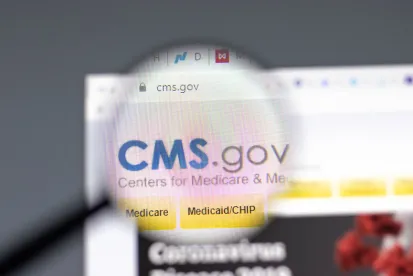The Centers for Medicare and Medicaid Services (CMS), as part of 2023 Physician Fee Schedule proposed rule, has proposed significant revisions to the Medicare Shared Savings Program (MSSP). The revisions to the MSSP in the proposed rule (the Rule) are designed to address the lack of growth in beneficiary participation in the MSSP and the fact that higher spending beneficiary populations, and racial and minority beneficiaries are increasingly underrepresented in the MSSP.
Summary
The MSSP has been the leading and most popular government alternative payment program since its introduction with the passage of the Affordable Care Act (ACA). Many hoped that the health care delivery system would transform relatively quickly following passage of the ACA to one paying for value and not more procedures. In 2018, CMS significantly revised the MSSP through its Pathways to Success, with the revisions designed to accelerate the transition to downside risk for participating providers, which we discussed in an earlier blog post. The Pathways to Success revisions established a glide path requiring accountable care organizations (ACOs) to move to downside risk after two years in the MSSP and with the level of risk and reward increasing over the five-year term of participation.
Since 2018, the number of beneficiaries participating in the MSSP has slowed significantly from the growth trend prior to 2018. From 2012/2013 to 2018, there had been a steady increase in participation from 3.2 million beneficiaries participating to 10.4 million. Since 2018, the number of beneficiaries participating in the MSSP has bounced up and down a little, but effectively plateaued, with an estimated 11 million participating in 2022.
In the Rule, CMS proposed changes that it hopes will grow membership and make the MSSP more appealing to providers, even if it slows the moving of all participants to downside risk. Among the more significate changes are:
-
Slowing advancement to downside risk for certain ACOs;
-
Offering certain new and low revenue ACOs advance investment payments;
-
Adjusting the cost benchmark to remove perceived issues that make payment of shared savings less likely over time;
-
Creating opportunities to earn shared savings by modifying certain requirements; and
-
Reducing some administrative burdens placed on ACOs.
Principal Revisions
The principal revisions in the Rule include:
-
Slowing Path to Downside Risk for Certain ACOs. The Rule provides an opportunity for inexperienced ACOs, beginning January 1, 2024, to participate in a five-year agreement, with a potential eligibility for two (2) additional years, under a shared savings only model with no downside risk. In addition, ACOs currently in Level A or Level B would have the option to continue in their current Level with no downside risk for the remainder of their agreement. The Rule also would allow participating ACOs to remain in Level E of the BASIC Track and not be required to move to the ENHANCED Track, which has higher risk sharing. These modifications address concerns that certain ACOs are not prepared for or desirous of being required to participate with downside risk or with increased risk.
-
Increased Advance Investment Payments. One issue ACOs have faced has been that they must make investments in infrastructure to participate successfully in the MSSP. Under the MSSP, the only return on such investments has been the potential to earn shared savings, and many ACOs do not do so. This has been a particular challenge for smaller providers in rural and underserved areas. CMS’ proposal is to make available to new ACOs which are identified as being low revenue or inexperienced with performance-based risk initiatives to receive an upfront payment of $250,000 as well as quarterly payments for the first two-years of a five-year agreement period. These payments must be used to improve health care infrastructure, increase staffing or provide accountable care for underserved beneficiaries. If the ACO does not earn shared savings, CMS does not recoup the payments unless the ACO terminates its participation in the MSSP during the agreement period.
-
Benchmark Revisions. One of the initially identified challenges with the MSSP was that an ACO’s success in one year had an impact on lowering the cost benchmark in subsequent years and thus the ACO’s own success made it harder for the ACO to earn shared savings as it had to continually beat its past performance. CMS has worked to address this issue over time and continues to do so in the Rule. CMS proposes to incorporate an external factor to update historical benchmarks and make other adjustments that would help insulate an ACO from being adversely affected by any savings the ACO earned previously. This external factor and the other adjustments also are designed to reduce the impact of regional adjustments that had been found to disadvantage participating ACOs who, because of their larger relative size in a region, had been a significant contributor to regional costs. Further benchmark adjustments also are designed to better account for medically complex, high-cost beneficiaries and guard against coding initiatives.
-
Increased Opportunities for Low Revenue ACOs to Earn Shared Savings. CMS proposes in the Rule to expand eligibility criteria to allow certain low revenue ACOs participating in the BASIC Track to earn shared savings even if they do not meet the minimum saving rate requirement. This adjustment, which would begin January 1, 2024, and would increase the ability to earn shared savings payments to ACOs with the greatest need for shared savings, namely smaller, rural ACOs. It is designed to encourage smaller, rural providers to join ACOs and participate in the MSSP.
-
Adjustments to Payment of Shared Savings. In the Rule, CMS also proposes to make adjustments to the shared savings payments that may be made to ACOs. One such change is with respect to the quality standards that must be met to earn shared savings. The Rule reduces a quality eligibility criterion by now allowing ACOs that have quality performance scores equal to or higher than the 10th percentile of performance on at least four (4) outcome measures to be eligible for shared savings. This change would serve to eliminate the cliff for eligibility based on quality outcomes and allow payment of some savings, albeit at a lower level if they qualify at this lower level. A second change in the Rule, has also been introduced in the ACO REACH program, is that CMS proposes to introduce a health equity adjustment. The adjustment would reward ACOs who provide care for underserved populations. It would provide an upside-only reward to providers in ACOs who serve a minimum number of underserved or dual eligible beneficiaries.
-
Reduce Administrative Burdens. The Rule also seeks to make participation in the MSSP more desirable by reducing certain administrative burdens for participating ACOs. First, beginning January 1, 2023, the Rule would eliminate the requirement to submit all marketing materials to CMS in advance. There still would be requirements concerning the content of marketing materials that CMS could review for compliance, but pre-approval would be not required. Second, the Rule would eliminate the need for ACOs to provide annual notifications to beneficiaries before their first primary care service visit in each performance year. Instead, an ACO would be required to provide one beneficiary notice prior to the first primary care service visit in an agreement period, followed by a communication within 180 days after that notice is provided. The second communication is intended to promote an understanding of the content and allow the beneficiary the chance to ask questions. Third, the Rule also would simplify the narrative required to qualify for the SNF 3-Day Rule Waiver where it is available.
-
Updates to Primary Care Services Used for Beneficiary Assignment. CMS also proposes in the Rule to add new prolonged service codes and new chronic pain management codes to the definition of the primary care services used for beneficiary assignment. These would start January 1, 2023.
Conclusion
In the Rule, CMS addresses a number of issues that it believes will encourage more providers, particularly inexperienced and smaller revenue providers, to join ACOs and participate in the MSSP. The availability of participation without downside risk over a full agreement period and allowing for advance investment payments to pay for infrastructure, which payments are only recouped from shared savings if the ACO does not participate throughout the entire agreement period, appear to be changes that may lead to increased participation.
The fact that growth in the most popular government value-based program needs to be encouraged also signifies that the conversion to a value-based health care delivery system is a slow process that is unlikely to occur in the near future.




 />i
/>i

